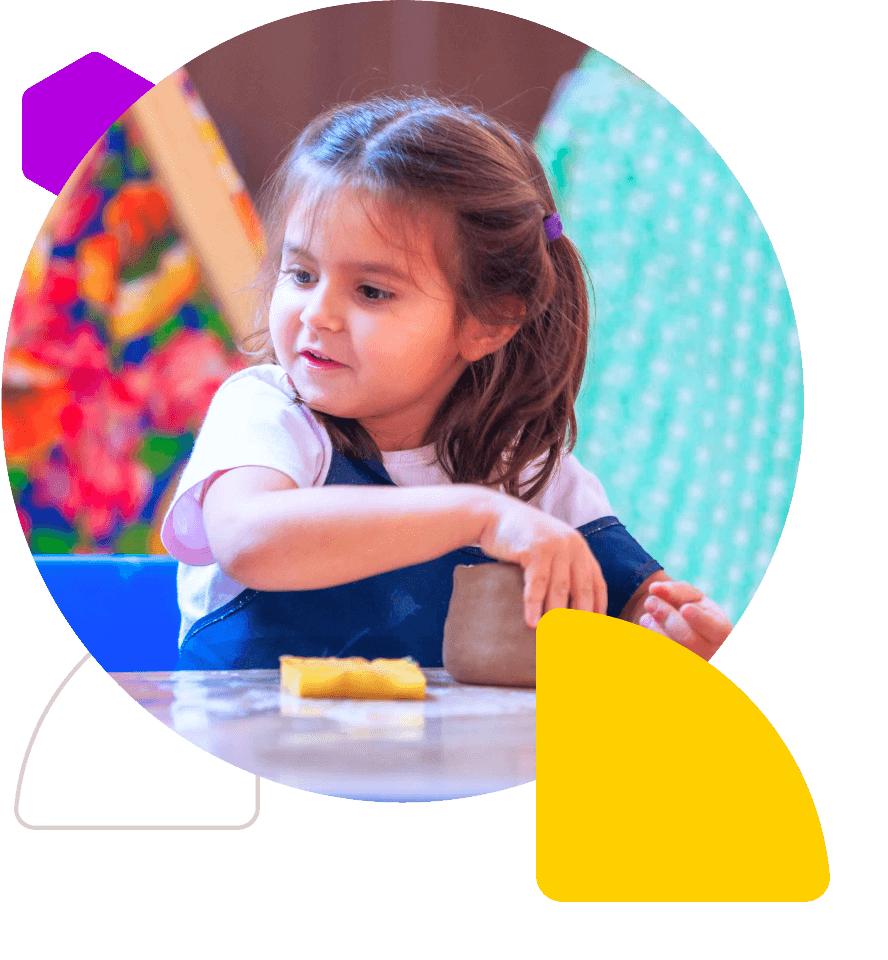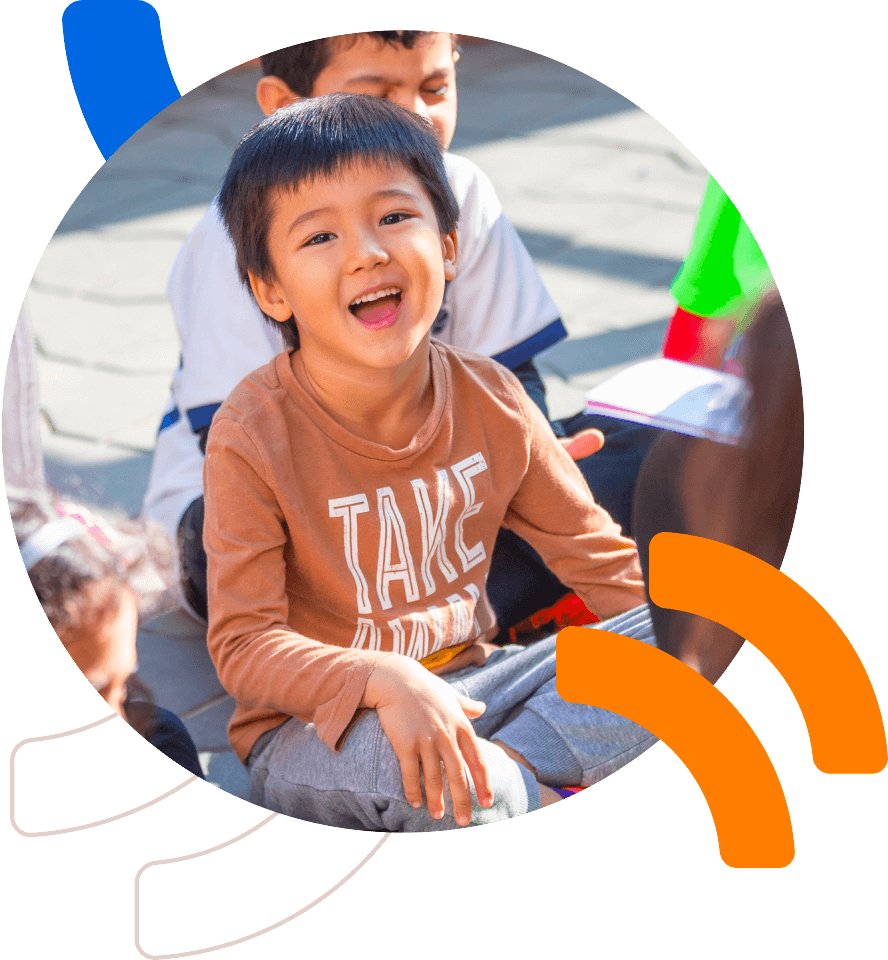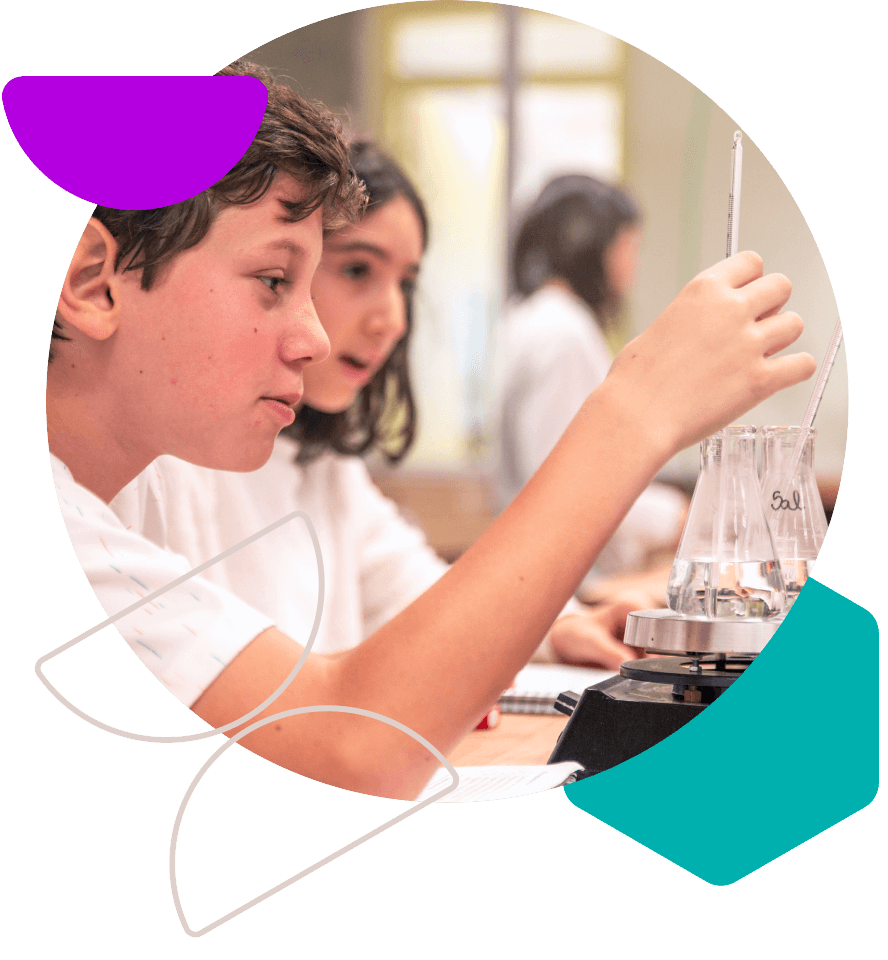
Móbile English Experience and learning
Aprendizagem e experiência caminham juntas no Inglês Móbile – um programa opcional para os alunos e alunas de nosso Programa Regular. Por meio de vivências estrategicamente planejadas, nossos(as) estudantes experienciam diferentes contextos comunicativos e situações em língua inglesa. Dessa maneira, desenvolvem habilidades e competências essenciais para sua comunicação nesse idioma, que é, como se sabe, um dos mais importantes do mundo contemporâneo.
With a weekly workload of 6 hours for students from Early Childhood 3 to 5th grade of Primary School and 4 hours for students from 6th to 9th grade of Middle School, Móbile English provides partial immersion in the English language. This extension of the use of English contributes decisively to proficiency in this language, which also makes it possible to obtain relevant international certifications.
-
Regular Period
Early Childhood and Primary School
Monday and Wednesday - 10h00 to 13h00 (afternoon students) and 12h25 to 15h25 (morning students)
Tuesday and Thursday - 10h00 to 13h00 (afternoon students) and 12h25 to 15h25 (morning students)
-
Middle School
Monday and Wednesday - 14h10 às 16h10 (6º, 7º e 8º ano) e 16h20 às 18h20 (9º ano)
Tuesday and Thursday - 14h10 às 16h10 (6º, 7º e 8º ano)

Early childhood
The introduction to English during Early Childhood Education aims to increase the familiarity of the child with this additional language. The conduction of activities such as storytelling, music, games and other ludic experiences is made by the teachers in English so that the use of the language is associated with positively significant experiences. That means that the children understand, from an early age, that learning this language can be fun and joyful.

School English for Primary School candidates
Active projects and methodologies guide the learning in Primary School. Through many activities our students practice reading and writing texts of increasing complexity and adequate for their age. And so, we associate the development of our content to current themes and relevant topics as a way to awaken in our students a critical and empathic eye about the world they live in.
The close follow-up – like in Early Childhood, done by one the assistant teachers – guarantees the necessary attention to the time and the needs of each student.

School Middle School
As children grow up and become teenagers, their challenges start to become more and more complex - and therefore more and more stimulating.
In each group, we carry out projects that combine different linguistic and cultural content and delve into contemporary genres that are very present in students' lives, such as podcasts, articles and infographics.
Students are exposed to different topics in order to articulate and transfer their English language learning and, consequently, develop skills such as communication, cooperation and collaboration, critical awareness and creativity.
By the end of the course, students are able to understand complex texts on both concrete and abstract topics. They can interact with English speakers fluently and naturally. In addition, they can produce clear and detailed texts and defend a point of view.
